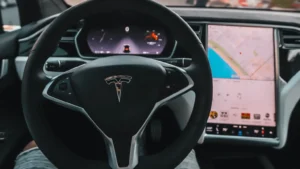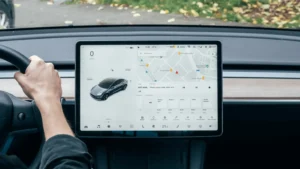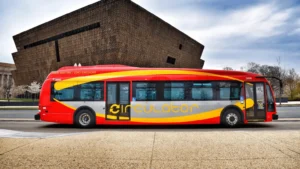The global Electric Bus Market is projected to exceed USD 91.54 billion by 2033. Rising demand for electric buses within the automotive sector, along with increasing disposable incomes in emerging economies, is significantly driving the growth of the Electric Bus Market. The Asia-Pacific region has surfaced as the most promising hub of opportunities, supported not only by rising consumer incomes but also by strong government initiatives promoting sustainable mobility. With urbanization accelerating, governments are prioritizing eco-friendly modes of public transportation, and electric buses are becoming a preferred choice due to their compliance with environmental policies and their ability to meet the needs of rapidly growing cities.
A major catalyst for the Electric Bus Market expansion is the operational cost-effectiveness of electric buses, combined with their alignment with global sustainability goals. Companies are innovating to reduce recharging time and optimize overall operating expenses. For example, BYD has pioneered a wireless charging solution that enables buses to recharge without physical infrastructure, even while halted at bus stops or traffic signals. Meanwhile, manufacturers like Yutong are investing in passenger-centric innovations, with its AI-powered “smart bus” system designed to optimize routes, alleviate congestion, and improve overall rider experience. The growing shift in government focus toward electrification of public transport, coupled with widespread awareness campaigns, is providing robust momentum for the Electric Bus Market, particularly in developing nations.
Industry players within the Electric Bus Market are actively engaging in mergers, partnerships, acquisitions, long-term service contracts, and collaborative ventures to expand their global reach. For instance, in September 2021, BYD entered into a strategic collaboration with ITOCHU Corporation to develop and distribute electric buses in Japan. Under this partnership, BYD contributes advanced battery and bus technology, while ITOCHU leverages its extensive sales and service infrastructure to strengthen penetration in the Japanese market. The alliance aims to roll out diverse electric buses, including intercity, city, and airport models, integrated with BYD’s advanced battery systems offering long ranges and rapid charging capabilities. Given Japan’s relatively slow adoption of electric buses compared to other Asian nations, this collaboration represents a strategic opportunity for BYD to boost its share in the Electric Bus Market.
According to insights from CXOs and primary research, the combination of rising disposable incomes and robust government support in both developed and developing regions will strongly accelerate the Electric Bus Market. Governments’ emphasis on eco-friendly transportation and sustainability is motivating leading manufacturers to increase their investments. Cost-efficiency and environmental benefits remain the core selling propositions for most companies operating in this sector.
The Electric Bus Market is studied across North America, Europe, Asia-Pacific, Latin America, and the Middle East & Africa. Among these, Asia-Pacific is forecasted to register the highest growth, followed by Europe, North America, Latin America, and the Middle East & Africa. Strong government backing, fast adoption of technological innovations, rising income levels, and the presence of dominant industry leaders are fueling the market potential in Asia-Pacific. Prominent companies competing in the Electric Bus Market include AB Volvo, Ashok Leyland Limited, BYD Company Limited, Daimler AG, Hyundai Motor Company, NFI Group Inc., Nissan Motor Corporation, Proterra, Solaris Bus & Coach S.A., TATA Motors Limited, and Yutong.
Click here to read complete article








